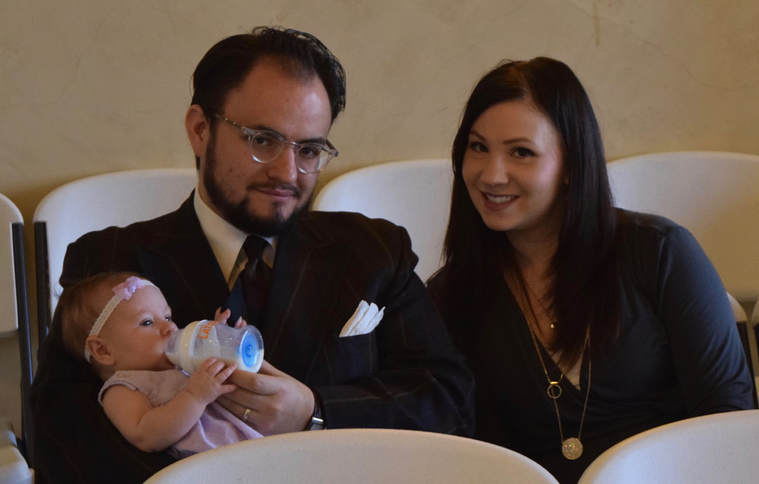|
Many years ago, when I was a brand new curate, I had a woman come into my office to talk to me about having her son baptized. She was not a member of the parish, and in fact I had never even laid eyes on her before she stepped into my office that day. So I asked her what I thought was a very practical question. “Why do you want to have your son baptized?” She looked at me like I had snakes coming out of my ears. As if to say, “Isn’t it obvious,” she responded, “Well, so he won’t go to Hell, of course!” Now it was my turn to be shocked. I said, “Ma’am, this isn’t some sort of magic wand or ‘get out of Hell free’ card. It is a sacrament!” I can’t remember what happened after that, but I do know that I never did that baptism. According to the Anglican catechism, a sacrament is “an outward and visible sign of an inward and spiritual grace." It goes on to say that sacraments should be received, “by faith in Christ, with repentance and thanksgiving.” So for a sacrament to be valid, faith must be present. This is why I can’t stand on the side of the road with a garden hose and baptize people as they walk by, because without faith I am just getting them wet (and probably myself in trouble). But if that is the case, how can we allow babies and young children to receive the sacraments of Baptism and Communion? Shouldn’t we wait until they are old enough to profess a personal faith in Christ? Shouldn’t these sacraments be invalidated by the absence of faith? Not at all. To understand how a child can receive the benefit of the sacraments of Baptism and Communion, take a moment to think about your own childhood. When I was growing up, my parents did not leave me to fend for myself. I was part of the Zolner family. My parents bought a house, and I lived in it. My parents had a checking account and bought me clothes and toys with it. My mom made us dinner and we ate it. I didn’t make a lot of decisions, but I trusted my parents to make good decisions for my sake and the sake of the family. I wasn’t choosing where to live or what to eat, but that doesn’t mean I wasn’t benefiting from my parents choices.
With this in mind, let us now take a look at Baptism and Communion. Most of us would probably agree that your average two-year-old has not reached an age where she can make a conscience, informed decision regarding faith. However, this same two-year-old is not an autonomous individual, but rather part of a family. So if Mom and Dad possess faith in Jesus Christ and choose to have their daughter baptized, it is the faith of the parents and not the child that makes that sacrament valid. One of the things that happens quite often in the church these days is that I will have an older couple come to me and ask if I will baptize their grandchild. I always tell them that I would be happy to do it but first need to get a note from the pastor where the child and his parents attend church. I need to make sure that Mom and Dad are active, believing, church going Christians. If they are not, I can’t do the baptism. Not only will I be asking the parents to make promises that I know they have no intention of keeping, but also if there is no faith on the part of the parents, the sacrament itself is invalid. The same is true for Holy Communion. As Anglicans we invite all baptized Christians who come to faith in Christ to receive. But for the baptized child it is once again the faith of her parents that is operative in making the sacrament efficacious. Of course, this is not a static system. Just as my parents no longer decide what I will wear and where I will live, all children must at some point choose faith in Christ for themselves. It happens at different times for different people, and as parents it is our job to help our children in the process of taking ownership of their faith. But it is nice to know that while children wait for that day to come they can rely on the faith of their parents to guide them along.
0 Comments
Leave a Reply. |
The Rev. Eric ZolnerFather Eric is a 3rd generation Anglican and the Rector of All Saints Anglican Church in Springfield, MO. Archives
February 2021
Categories |
|
All Saints Anglican Church
2751 E Galloway Street Springfield, MO 65804 Church Phone Number: 417-888-3001 GET DIRECTIONS |
Sunday Morning Worship
8:15 a.m. Holy Communion 10:45 a.m. Holy Communion Click here for this week's worship schedule Morning Prayer 8:15 a.m. Monday through Friday |


 RSS Feed
RSS Feed